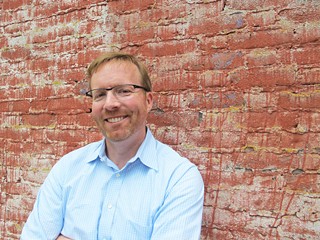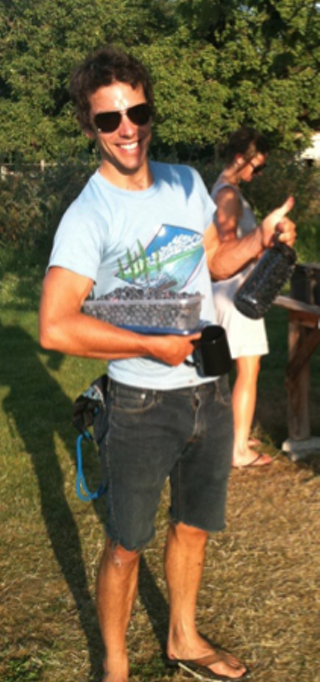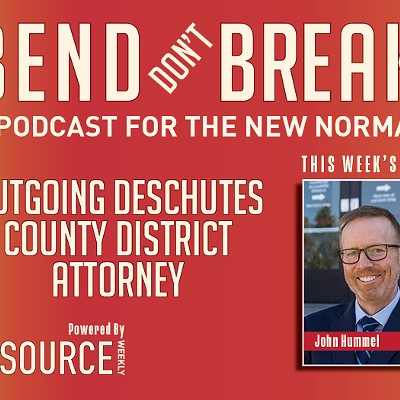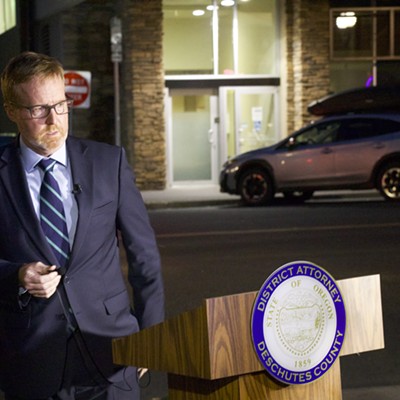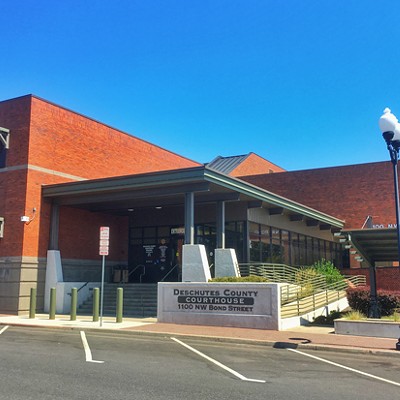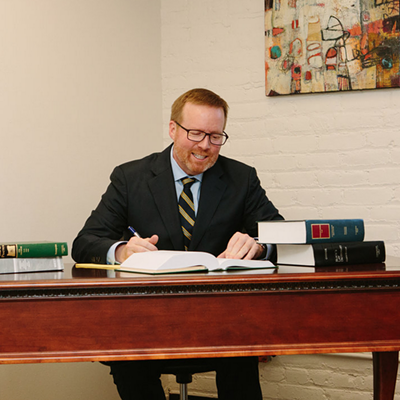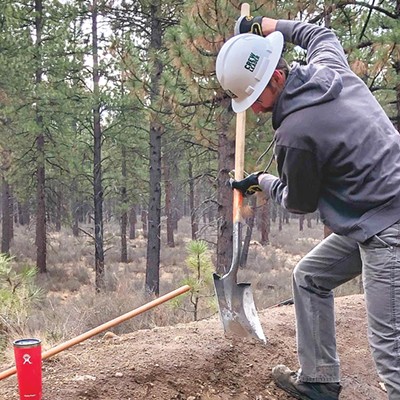John Hummel, 44, has just announced that he'll run for Deschutes County district attorney against Patrick Flaherty in the May primaries. Hummel, a former Bend city councilor, has worked as an attorney, professor, and, from 2008 to 2010, he helped rebuild a justice system in war-torn Liberia. Today he's the director of the Oregon Primary Care Association, a nonprofit membership organization for community health centers.
Hummel has already won endorsements from Bend Mayor Jim Clinton, Redmond Mayor George Endicott and Sisters Mayor Brad Boyd, as well as notable Central Oregon businessmen Bill Smith, Mike Hollern and Bob Eberhard.
Last week, we sat down with Hummel and talked law, mandatory minimum sentencing and beer.
SW: So what have you been up?
Hummel: I've been back in Bend about six months. Before that I was working at Portland State University for two years directing a conflict resolution program. And for the last one and half years I've been working for a nonprofit healthcare association [the Oregon Primary Care Association] as their attorney and policy guy.
And how long were you in Bend before?
I was here 12 years, practicing law and serving on the city council for six of those years.
And you had your own law firm, right?
I did. I started with the public defender's office and then formed a law firm with two other colleagues.
Doing what kind of work?
Doing criminal defense, personal injury and government relations.
So you're jumping the fence?
Yeah, that's right. I have a passion for justice. When I went oversees to Liberia, I worked with the Carter Center—President Carter's Peace and Justice Organization. I was helping them to rebuild the justice sector after their brutal 15-year civil war, where all the cops, judges and lawyers were killed. So we helped train cops, judges and lawyers in how to run a functioning justice center. I enjoyed it. Look, bad people need to be prosecuted.
How would you define the difference between the public defender and the district attorney?
Most prosecutors and defense defenders would never think of working on the other side. Actually I never liked that. When I was a defense attorney I loved standing up for the little guy, and as a prosecutor I loved standing up for public safety. And I don't see anything inconsistent. It's the attorney who says, "I couldn't prosecute if I was defense attorney," or vice versa, that I don't respect. I don't see how you work in the system and think you couldn't do the other role.
Could one say that's a criticism of where you're at—that you've just been bouncing around for the last couple of years?
For 14 or 15 years I've been involved in criminal justice. So that was kind of chapter one. And then you have this health care thing, which is kind of this weird little appendage. But it's health care for the poor—so I'm fighting for the plight of the least among us, and that's consistent with my work.
Lets talk a little about Deschutes County. What are the biggest shortcomings in the DA's Office right now, in terms of issues that aren't being prosecuted?
Here's the big issue—well, the big issue is the cost to taxpayers—but Patrick (Flaherty, the current DA) is holed up in that District Attorney's Office. For the last four months I've been traveling around meeting with people—the mayors of La Pine, Sisters and Redmond, and about 50 other people—and every one of them I've asked, "Have you met this guy? Has he ever been down to talk to you?" And they say, "No." We have to develop public safety priorities from the bottom up. We need to get out in the communities and find out what their priorities are. Two: I would have more of an emphasis on crime prevention.
But there are some immediate things—meth is a problem, poverty is a problem—do you prioritize those over prevention?
Look, there's never a "good" time to spend money on prevention, because it's never going to be as in your face as the crime you have. So if you don't make a concerted effort to focus on prevention, it'll never happen. So I'm going to make that effort. We will put more resources into prevention.
If you won, you'd be inheriting an interesting culture. How much cleanup do you feel like you'd need to do?
A lot. Internally and externally. Internally, the staff has to be on pins and needles. It must be miserable to go into the office every day. So I have focus on that staff, making them comfortable and making them respect the head of the office again.
If you didn't win the race what would you do?
I have a job [as the state and federal policy director for the Oregon Primary Care Association]. So I'd be here.
What about big picture issues, like the death penalty. Where do you come down on that?
Death penalty would be enforced; measure 11 (mandatory minimums) would be enforced. I wouldn't have voted for those—I voted against measure 11 and would do so again—but we're not going to be legislating from the office.
Talk about your time in Liberia. What was your biggest takeaway?
One reason I went there is I was disappointed about the state of the U.S. at the time; it was the George Bush era and I wanted to do my small part to show the world that there are some good people out there. In Liberia people still look to the U.S. as a model of what a justice system should look like. We have our faults here, and let's not forget those, but we have a pretty darn good system. So we need to fight to preserve it.
We hear you're a beer drinker.
I like beer, yes.
Got a favorite right now?
I like the Sweet As from GoodLife. And as much as I love Boneyard's IPA, I have to go with BBC's Outback as my favorite.

